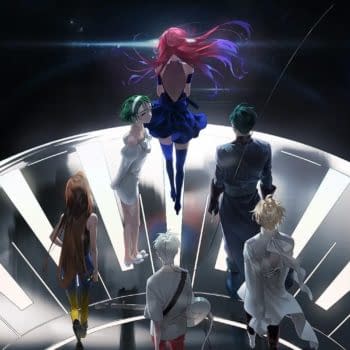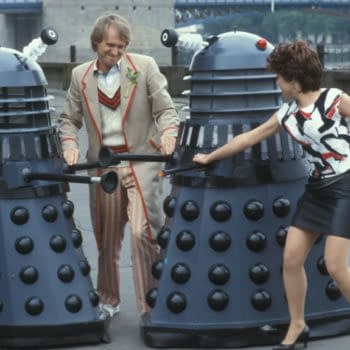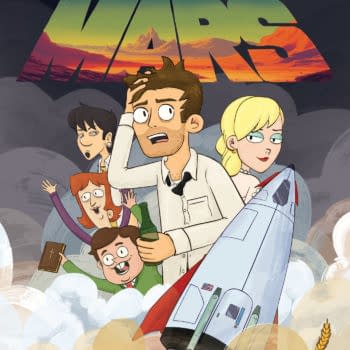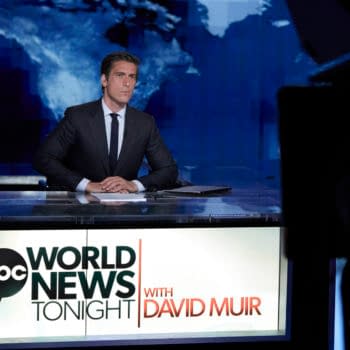Posted in: BBC, Doctor Who, TV | Tagged: Audio Drama, bbc, big finish, doctor who, James Goss, peter capaldi
Doctor Who: Doom's Day Maintains Show's Satirical British Sci-Fi Vibe
Doctor Who: Doom's Day is available on the official Doctor Who website, continuing the series' tradition of satirical British Science Fiction.
Doctor Who: Doom's Day is one of the tie-in media events celebrating the show's 60th Anniversary. It's the most ambitious, hopping between prose stories on the official show's website, the Doctor Who comic, Big Finish audio drama, and prose books. You can read the first chapter of the story in prose form on the official Doctor Who website.
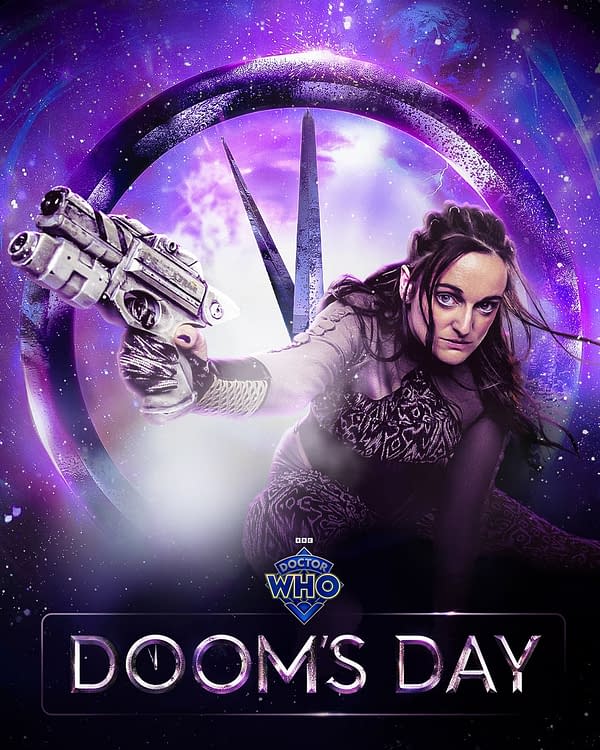
Doctor Who: Doom's Day Hour One is written by James Goss, who has written countless Big Finish audio dramas and shows his deft hand at both Science Fiction and Doctor Who. Doom (Sooz Kempner) is reputedly the galaxy's greatest assassin-for-hire, but suddenly she's marked for death. She only has twenty-four hours to live, and she thinks the only way to stay alive is to find The Doctor. But he could be anywhere in Space and Time. Fortunately, she has a vortex manipulator that can take her where she needs to go. The first chapter, or hour, tells us how she got into this situation and sets the stage and tone for the whole series. Doom meets The Doctor in the first hour, with hints that it might be Peter Capaldi's Twelfth Doctor based on the description. She might be meeting several other Doctors in the next chapters.
Doctor Who's Tradition of Satirical British SciFi
Goss effortlessly establishes the mood of slightly derivative, whimsical British Science Fiction with some social satire that has come to define Doctor Who. The influence of Douglas Adams looms large over the story as Goss shows here that the worst menace is not genocidal Daleks but bored, resentful, passive-aggressive bureaucrats and office gatekeepers. The Science Fiction universe of Doctor Who has always been a chaotic place with satirical corners full of annoying bureaucrats. A huge swath of planets and civilisations in the show features bureaucrats whose rigidity, pettiness, and lack of imagination led them to make decisions that kicked off many of the stories in the series – including on Gallifrey. Adams wrote a few episodes for the show and even served as Story Editor, a job that was effectively Head Writer for Doctor Who at the end of the 1970s. His rebellious, anti-Establishment attitude, coupled with his eye for the petty, surreal absurdities of life, seemed to fit the show and helped him go on to write The Hitchhiker's Guide to the Galaxy.
Is a Multimedia Event Too Complicated?
The opening hour of Doctor Who: Doom's Day is a perfectly fine opener to the event, though we wonder about the feasibility of spreading its twenty-four parts across different media. The next chapter is going to be a comic book miniseries published by Titan Comics, followed by an audio drama produced by Big Finish, then prose books, then perhaps culminating in Doom finally meeting the Fourteenth Doctor (David Tennant) in the comic strip serial in Doctor Who Magazine before the premiere of the first television special in November. We can't help wondering who has the time or the disposable income to spend on the next chapters. Following twenty-four chapters (or "hours") of Doom's chase across several mediums might feel like you're being milked of cash and time on a side story that's more easter egg than canon since it's designed for fanservice and it won't seem to impact the TV specials or next season, since with Doctor Who, stories not on television are often not considered canon.




